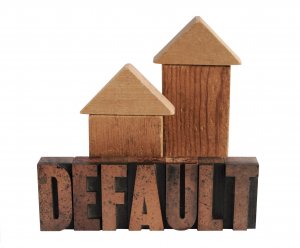 If you are in need of cash, one solution that may come to mind is by selling your own property. But what if you are in default? Will you still be able to sell your home successfully? The short answer is – Yes. But, here are some things you need to be aware of before you do so.
If you are in need of cash, one solution that may come to mind is by selling your own property. But what if you are in default? Will you still be able to sell your home successfully? The short answer is – Yes. But, here are some things you need to be aware of before you do so.
Default – What It Means
When a borrower continuously misses making payments for the loan, the lender may declare a default. The lender may call for a default regardless of how much money you owe, may it be a few pounds or a few thousand pounds. It may also depend on how long you have been failing to make payments, and usually, borrowers are considered in default when they have failed to make payments for three to six months. But overall, it all depends on the lender, and on their terms.
There are certain situations which we cannot avoid, and would lead us to fail in making payments, even for something as important as a home. Being in default is never a positive situation, but here’s the greater danger: when you are in default, you are basically on your way to repossession.
Nevertheless, there is still a solution, and you are not out of options. Here are some tips to help you to avoid repossession:
- Ask your lender or your bank whether you qualify for a loan refinancing.
- Doing so opens the chance of increasing the life of your loan, and the chance of decreasing your monthly payment. This will give you more chances of repaying your monthly debt, and to help you catch up on your default.
2. Ask your lender for a grace period.
- Do not hesitate to explain your side story to your lender. Your current situation may be a difficult circumstance, such as job loss, or health issues, and so, you may ask your lender for a period of time for you to find money to pay off your property.
3. Ask help from counselling centres to guide you in your current financial situation.
- There are agencies and counselling centres that specialize in giving you options and alternatives to help you in avoiding additional debt. You may try visiting Shelter, The Minister Centre or even financial coaches such as Wise Monkey.
4. For the last resort, liquidate your assets.
- When the above options fail, try selling some of your assets and see which could help in paying your monthly payments so that your loan will be decreased and paid accordingly. Most people tend to sell more expensive assets such as their cars, but you may also sell other things, or do a garage sale even.
Yes, You Can Still Sell Your Home Even in Default.
Although being declared in default is a serious and critical stage, the good news is that your property still remains as yours and you can still sell it. You can sell your home almost any time, but here’s the downside: your current financial and mortgage situation are important factors and elements in how you are to market your property. But although you are able to sell your property, there are a lot of things that you would need to do first.
Before you start advertising that your home is up for sale, you have to first repay your lender what they are due. This may include taxes, fees, and other penalties that may have resulted from your default. Fortunately, in the UK, the mortgagor has a right of redemption, which means that you have a period of time where you can redeem your property after repossession, which is usually around a year.
When Should You Sell Your Property
 It is not uncommon for mortgagors to have some mortgage arrears. This may be due to individual financial struggles, or job loss, or an illness. These situations may oftentimes lead to a default. It is also possible that there might be no definite means of increasing your income or assets to cover your mortgage costs and debts. And so this is when selling your property becomes an option. Selling your property enables you to have a huge amount of money which you could then be able to use to pay off your mortgage, and if fortunate, you might have enough leftover cash to pay off additional debts and expenses.
It is not uncommon for mortgagors to have some mortgage arrears. This may be due to individual financial struggles, or job loss, or an illness. These situations may oftentimes lead to a default. It is also possible that there might be no definite means of increasing your income or assets to cover your mortgage costs and debts. And so this is when selling your property becomes an option. Selling your property enables you to have a huge amount of money which you could then be able to use to pay off your mortgage, and if fortunate, you might have enough leftover cash to pay off additional debts and expenses.
But what if the amount of money from the sale of your property is not enough to pay for what you owe? This situation is called a Negative Equity. If you decide to sell, there is no shortcut solution for this, so you will be required to pay the deficit amount. This must be calculated beforehand because you will have to ask your mortgage lender for permission, prior to making the actual sale. The lender will then send you a bill regarding the shortfall. Usually, there is a specific amount of time that your lender will give you to make plans to pay for your shortfall. However, if you are still unable to arrange a plan to be able to recover by the limited time is finished, your lender might force you to pay this amount through court action. However, if you do not wish to experience the consequences of a shortfall, there are a number of options you have to sell your home in negative equity.
To sum it all up, avoid repossession, get out from default by talking to your lender, and as the last resort, you can sell your property when in default to help you cover for your arrears. Being in default is never a positive situation, but it is also not impossible to avoid and to recover from.
